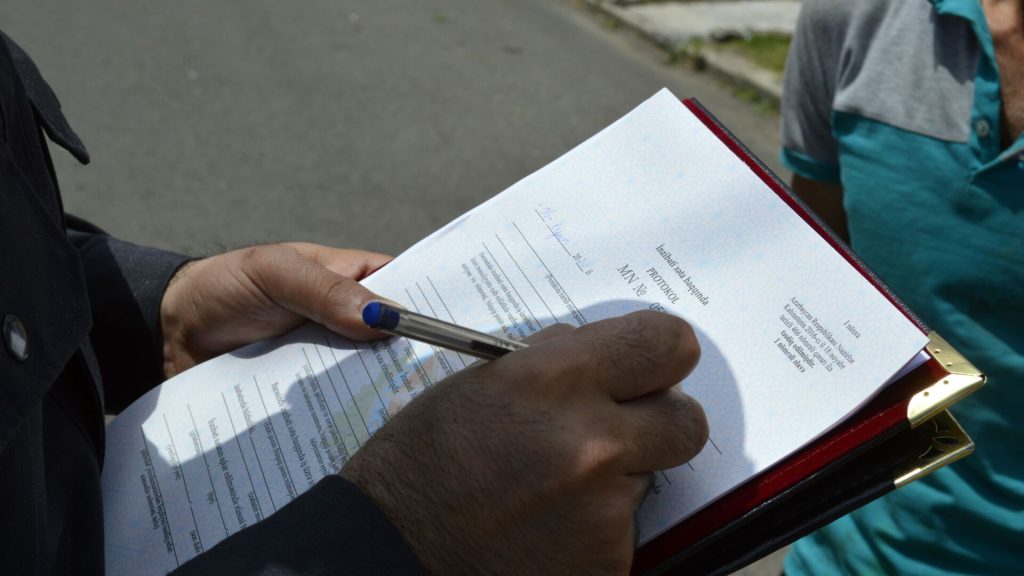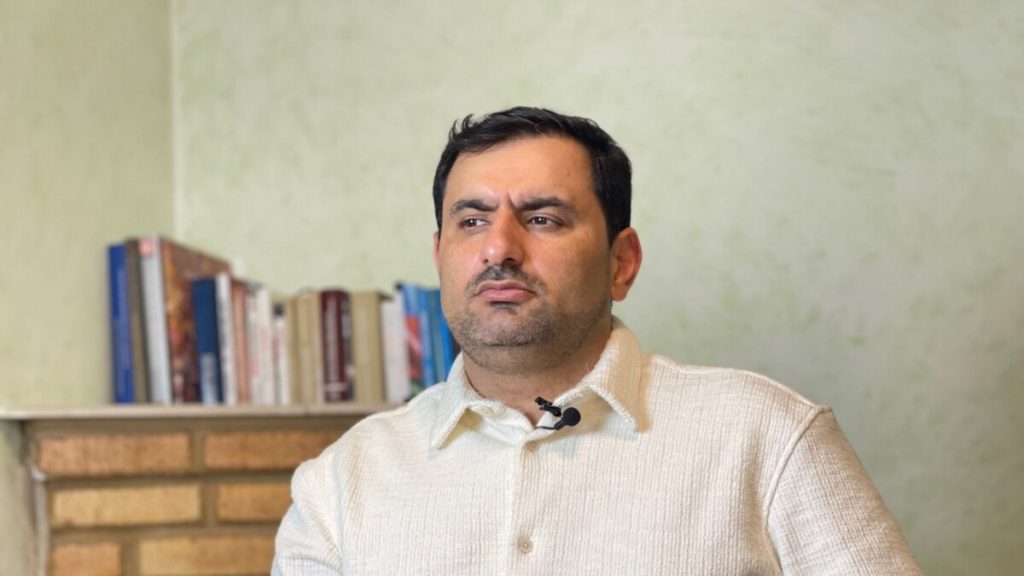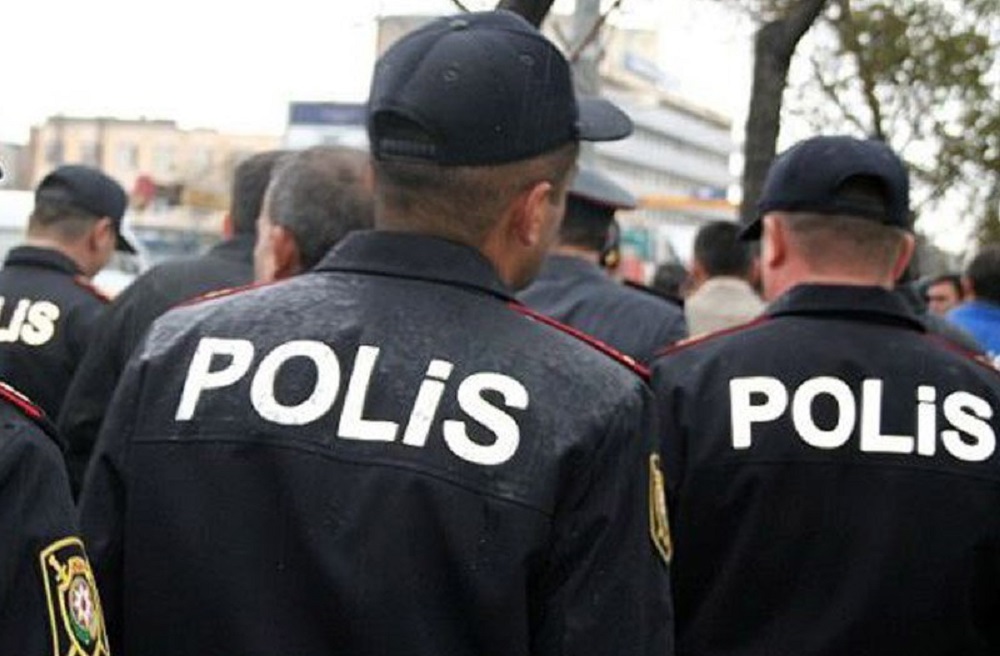Massive fines for lack of residence registration have become a huge problem in Azerbaijan
Issue with registration in Azerbaijan
“I received my first fine in early 2023 while residing in a rented apartment in the Bina State Farm neighborhood. During a police raid, I encountered them as I was leaving my residence. They inquired about my address, registration details, and cohabitants. I provided the information, and they promptly issued a fine. Unaware at the time that the law involves both a fine and a warning, I couldn’t voice any objections. To be honest, they didn’t even listen to me; they simply issued the fine and departed,” recounts Gasym Arizov.
- The Prime Minister of Georgia has resigned
- Four scenarios for the development of events in Crimea in 2024: A detailed analysis
- European Court to adopt 40 rulings on Azerbaijan in 2023

Gasim Arizov is originally from Mingachevir town and relocated to Baku in 2021 to pursue higher education. Over the course of two years, he resided in various rented apartments in the Bina settlement.
“My friend, also a student, and I rented an apartment, and it happened that the next month the landlord increased the rent and we had to move to another place. We changed housing several times for reasons like that. I didn’t realize that I must to register each time I moved. In fact, I don’t even understand the logic.”
After the initial incident, he incurred several more fines. Currently, he resides in an area known as “Dachi Jorat,” situated on the outskirts of Sumgayit. He mentions that there is no official lease agreement with the owner of this house, like in his previous residences. Consequently, he is unable to provide any documentation for registration. This situation raises the possibility of him facing additional fines in the future.
The law, which has been in effect since 1996, was enforced from the beginning of 2023
In accordance with the Law of the Republic of Azerbaijan “On Registration at the Place of Residence and Location,” every citizen is required to have a permanent registration at their place of residence. As per the regulations, individuals residing outside their place of permanent registration for more than 60 days must, within 7 days of their arrival, submit an application to the relevant state authority for temporary registration. This regulation also extends to non-citizens of Azerbaijan entering the country as tourists.
Individuals failing to comply with the law are subject to administrative liability under Article 563 of the Code of Administrative Offenses. The “liability” entails either a warning or a fine of 30 manats (approximately $18).
Although this law was enacted in 1996, the majority of citizens only became aware of its existence in early 2023. It was during this time that the Ministry of Internal Affairs issued a warning regarding fines for individuals failing to register at their place of residence. Since then, police raids have frequently targeted citizens lacking a permanent propiska and failing to register at temporary residences. Such individuals are susceptible to substantial fines.
Elshad Hajiyev, a spokesperson for the Interior Ministry, informed the BBC’s Azerbaijani edition that police authorities have been directed to issue warnings to citizens as the initial response to law violations. In cases of repeated violations, fines are to be imposed.
Nevertheless, official statistics on the number of individuals who received warnings and fines as a consequence of the raids were not disclosed.
“Without a bill of sale, you can purchase and sell apartments, but you cannot register at that location.”
Asmar Seyidova is among the citizens fined for failing to register at her place of residence. Despite being registered at her sister’s house in the Binagadi district of Baku, she has been residing in her own apartment in Khirdalan for several years. To register at her apartment, she requires a bill of sale confirming her ownership rights. Due to delays in issuing the bill of sale for apartment owners in the new building, she faces challenges in completing the registration process.
“Police officers knocked on my door and inquired about my place of registration. I explained that I couldn’t register because I lacked a bill of sale for my apartment. They responded that it wasn’t an issue, suggesting I could obtain temporary registration at the local police department. Subsequently, they fined me 30 manat. I suggested that they could have issued a warning first since I was unaware of this law. Their response was that the law has been in existence for a long time, and had it been new, they would have provided a warning,” Seyidova recounts.
Shortly after receiving this fine, she acquired a bll of sale for the apartment and successfully completed the registration process.
Nargiz Huseynli is another individual unable to register in her apartment due to the absence of a bill of sale. Nargiz is originally from the Yevlakh district, where she is registered. However, she has lived and worked in Baku for an extended period. Recently, she purchased an apartment in one of the new buildings in Khirdalan. Nevertheless, she is currently unable to complete the registration process for her apartment.
“Baku is replete with apartments lacking a bill of sale. Local executive bodies permit the buying and selling of these apartments without a bill of sale, but living in them without registration is not allowed. Where is the logic in this? An apartment is sold without a bill of sale, and a citizen who purchases it cannot register there, ultimately facing fines. It is imperative to address the nuances causing registration issues before blaming and penalizing ordinary citizens,” remarks Nargiz Huseynli.
“Do I need to register into three different apartments three times a month?”
Akbar Miriyev received a fine during one of the police raids.
“I own three apartments: one is my mother’s (where I am permanently registered), one is my own, and the third belongs is my wife. Due to caregiving responsibilities for my elderly mother, I have to stay with her on specific days of the month. Additionally, we alternate between the two apartments during the week due to school, the child’s courses, spending weekdays in one apartment and weekends in the other.
“I was in my wife’s apartment when the police conducted the raid. In a jest, I inquired if I had to register in three different apartments three times a month. They responded firmly with a yes. I was at a loss for words to object, and they proceeded to issue me a fine,” recounts Akbar Miriyev.
Individuals fined for registration issues are required to settle the fine within 40 working days. Simultaneously, citizens have the right to appeal this decision, but to exercise that right, they must be provided with a protocol specifying the grounds for the fine.
None of the individuals fined, whom we interviewed, were presented with this protocol.
“The fines are intended to augment the budget and are in conflict with the right to freedom of movement.”
Why, since the beginning of 2023, has the law, in existence since 1996, been enforced so intensively with widespread police raids and heavy fines imposed on citizens? Human rights activist Rufat Safarov provides the following explanation:

“I believe that the imposition of widespread fines is intended to generate additional revenue for the budget. While the statistics are not disclosed, making it impossible to calculate the exact amount generated by these fines, I presume that this is the primary objective.
There is no mechanism at the disposal of the police to ascertain how long a citizen has been residing at a specific address. How can they determine if I have lived in a place for 59 days or 60 days? Controlling the movements of millions of people is impractical. It’s absurd. Fining people in such a scenario, when in practice the situations are indistinguishable, creates legal uncertainty.”
Rufat Safarov also contends that the law on residence registration contradicts the constitutional right to free movement of citizens within the country:
“Freedom of movement is a constitutional right of citizens. This law contradicts the concept of freedom of movement. While authorities may argue that they are not restricting people’s movement but simply requesting citizens to inform them when exercising this freedom, such an interpretation is not aligned with fundamental human rights.
Citizens have the right to move freely within their country and choose their place of residence. It is not humane on the part of the state to pose the ultimatum of ‘either inform me about your place of residence or face fines.’ This imposes an unnecessary burden on citizens.”




















